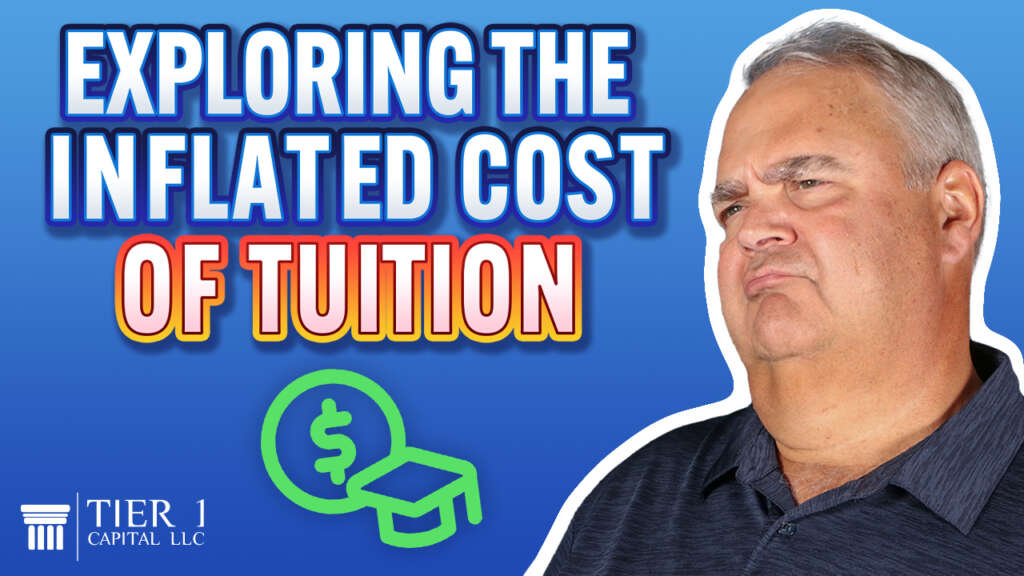
I recently had a conversation with a longtime client who had some life insurance set up prior to his retirement. He’s now ready to retire and he called me to discuss his options for his pension. He has a defined benefit pension plan through his employer. And he wanted to know which was the best choice for him as far as leaving survivor benefits for his spouse.
Well, the good news was that because he had such a large amount of life insurance. That life insurance will be more than enough to replace his pension without having to take a reduction in his monthly pension. His life insurance is now paid up and consequently, he has a guaranteed death benefit. He doesn’t have to take a reduction in his monthly pension to leave his spouse a survivor benefit.
You see, a lot of times people view life insurance premiums as a cost, not an asset. However, when you have a specially designed whole life insurance policy designed for cash accumulation, it’s both an asset as well as a death benefit. You’re able to access cash value via the policy loan provision while you’re alive and take advantage of those living benefits as well as take advantage of the death benefit so that when you pass, the main beneficiary receives a death benefit.
You see, you’re able to purchase death benefit dollars, with pennies, the premiums paid. What this allows you to do is take more risk in other parts of your portfolio. your I.R.A., your 401k or your pension plan.
In the case of our client, he had a defined benefit pension for $5500 per month. However, his wife is a lot younger than him, almost 15 years. So the defined survivor benefit was going to cost him about 1,500 dollars per month, meaning that instead of getting $5500 per month, he was going to get $4,000 per month. And he said, Tim, I can’t afford to retire on $4,000 per month. I can retire on 5500. What are my options?
Well, it was really simple because he had a paid-up life insurance policy that he had funded for over the past 20 years. He was in great shape. He had a guaranteed death benefit that would have more than compensated his spouse if and when he dies. They’re able to maintain the $5500 per month and provide the survivor benefit through the death benefit of his life insurance policy that he would have had to have paid for had he taken that survivor benefit through his retirement system.
Not to mention, because this is a specially designed whole life insurance policy designed for cash accumulation. He also has access to the cash values via the loan provision while he’s alive. So if he wanted to control the financing function, let’s say, for vacation or their child’s college education or anything else while they’re still living, he has the ability to do so and access that cash value on a tax-favored basis.
And you may be wondering what impact would accessing those cash values have on the death benefit. It’s really simple. If you die while there’s a policy loan on the policy, it will be reduced dollar for dollar against the death benefit. In essence, the policy loan is just an advance on a portion of the death benefit.
This really underscores the flexibility and the options you have when you get to retirement. You get to use the money prior to retirement, but now you have options. And those options can help to make your retirement lifestyle so much better. When you access life insurance policy loans, they’re not recorded anywhere for the IRS to see, meaning they don’t increase your taxes.
So what taxes will they not increase?
There’s no increase in your federal income tax. There’s no increase in your state income tax. There’s no increase in your Social Security offset tax. There’s no increase in your Medicare premium, which, let’s face it, is a tax. As well as in most states, The death benefit passes federal income tax-free. And in most states, the death benefit passes outside of probate and outside of estate and inheritance taxes. So when you add up all the taxes that you’re not going to have to pay. That’s a huge way to make your money go a little bit further.
If you’re interested in making your cash flow and your money, now and in retirement, more efficient, schedule your free strategy session today. Or if you’d like to learn exactly how we put this process to work for our clients, check out our free web course right on the homepage, The Four Steps to Financial Freedom.
And remember, it’s not how much money you make, it’s how much money you keep that really matters.


















